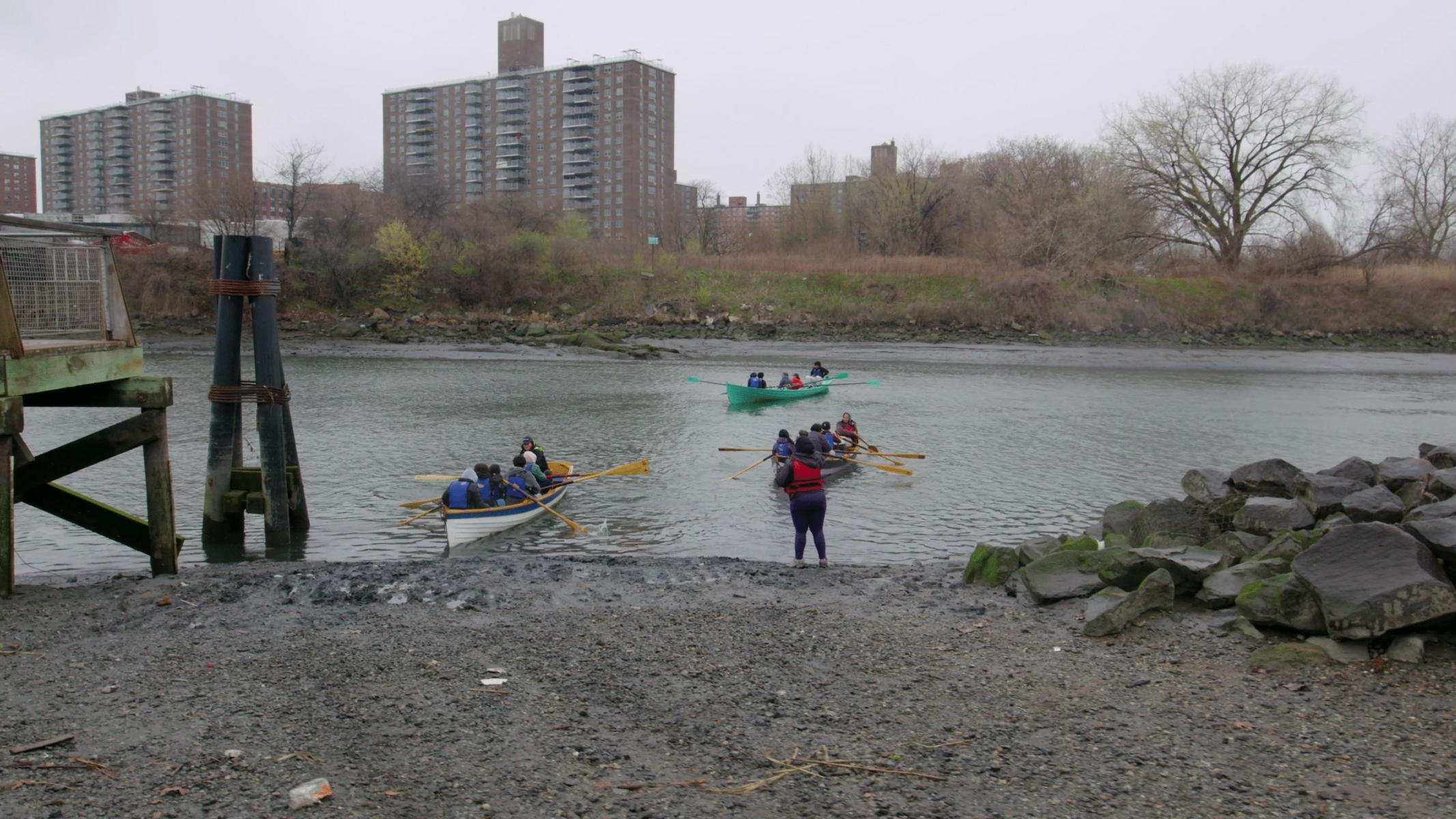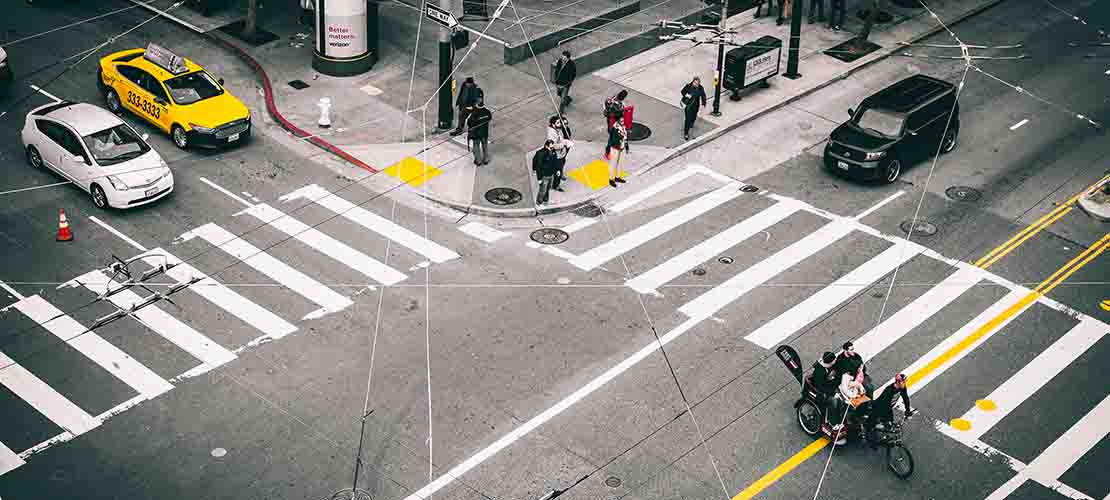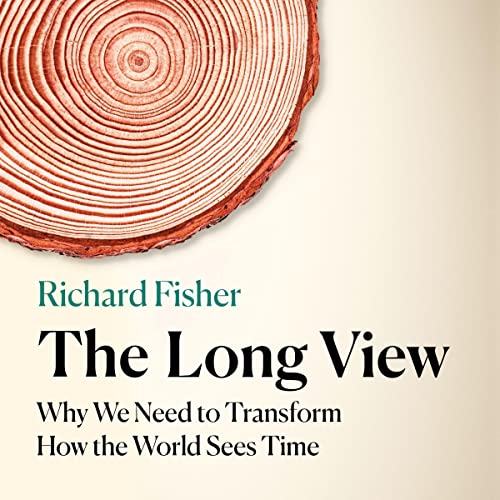From technology designed to stop you from working and junk food made to only temporarily satiate you, much of modern life is startlingly oriented toward the short-term.
In his new book, The Long View: Why We Need To Transform How the World Sees Time, BBC journalist Richard Fisher explains how this short-term mindset has come to dominate Western society, why that could spell disaster for our future, and explores historic and real world examples of those who are taking a long-term view.
From the architects who began work on England’s Wells Cathedral in 1175 knowing that construction wouldn’t be complete until well after their deaths, to an experiment at an Australian laboratory still ongoing a century after it began, and the Indigenous tribes whose ways of life are centered on intergenerational links, Fisher argues what makes humans unique is our ability to learn from the past and envision the future.
As humanity faces unprecedented threats, from climate disaster to the collapse of democracy, Fisher believes “recapturing” our long-term view of the world is a solution we can achieve.
Why did you decide to write this book?
It started with me reflecting on my daughter’s path into the next century. She was born in 2013 and I realized that she’ll be 86 in the year 2100. I normally encounter the date 2100 in relation to things like sea level rise, jobs taken by robots, threats of future catastrophe. That got me thinking about how short-termism and short term thinking is prevalent in modern societies, particularly in Western capitalist ones.
But I’ve always been fascinated by rocks and geology. With deep time, the history of life on Earth, there’s this sense that we’re just flashes of light on a pond; that we exist in these momentary seconds. In the long arc of time, we simply come and go.
How is that short-termism manifest?
You see it in business where the financial quarter dominates corporate thinking, the needs of shareholders in the market, encouraging company leaders to only think in cycles. You see it in politics with democratic terms, nudging politicians to only think about the next election. There’s a quote by John-Claude Juncker, former president of the European Commission, who in the aftermath of the financial crisis said: “We all know what to do, but we don’t know how to get reelected once we’ve done it.”
Short-termism is everywhere and what my book seeks to do is look at the external pressures — I call them “temporal stresses” — that nudge individuals, societies, organizations and governments into short-term thinking. Our hominid ancestors needed at times to focus on the present in order to survive, but through evolution, foresight gave us the ability to plan ahead and become so successful as a species.
What are the benefits of taking a long-term view?
I think many of the most serious, grand challenges that we face in the 21st century require a long-term view. You’ve got climate change, which is one of the big obvious ones, but there are many others. There’s the prevention of the next pandemic, there’s the rise of antibiotic resistance, there’s the rise of income inequality. I think that the daily cadence of news doesn’t allow you to see these things happening. It’s the frog in boiling water. Without taking the long view, you can’t see it.
But the real benefit of taking the long view is that, as well as seeing the trends that are worsening, you also see the things that are getting better. There’s a chap called Max Rosen, co-founder of Our World in Data, and he writes about child mortality. There are far fewer children dying as a percentage of the population today than there were previously. We should take heart from the fact our predecessors have changed things for the better. We can change things for the better too if we do the right things.
What ways can we take the long view?
If you look back in time, you can see that there have been long-minded views that existed in the past. And if you look around the world today, there are some people, organizations, cultures and societies that are more long-minded than others.
One thing worth really emphasizing is that there are many different kinds of approaches to the long view. There’s religious long views, there’s philosophical, mathematical approaches, but then there’s also kind of artistic long views as well, with artists creating deep time artworks. There’s no single approach.
Weighed down by negative news?
Our smart, bright, weekly newsletter is the uplift you’ve been looking for.The Zoroastrian religion in Iran and India has an approach to cultivating everlasting 1,000-plus-year fires. They have the sense of maintaining something for a very long time, having a duty to posterity to something that could go out any second. Jacques Cousteau, the marine explorer, was a long term thinker. He argued that the UN should adopt a Bill of Rights for Future Generations and campaigned on that basis.
How is long-term thinking making a positive impact right now?
One project I’m fascinated by is Katie Patterson’s Future Library. It invites authors every year to submit a manuscript that no one will read until the year 2114. The first author was Margaret Atwood and there have been various others. Each year, they write something, but no one will read it until the trees in a forest north of Oslo, which were planted to create paper for the books, are cut down after growing for 100 years.
It holds lessons for the rest of the world: about how to make something last, and also about what it takes to inspire people to think beyond short-term distractions. I particularly admire the Future Library project, because not only does it encourage a more “long-minded” perspective, it also invites all those that learn about it to reflect on their duty to posterity and what they are leaving behind for future generations.
A positive political example is the Future Generations Commissioner of Wales [who has been tasked with ensuring her country’s public institutions are taking into consideration how their actions affect Welsh citizens who haven’t been born yet].
Recently, the first commissioner Sophie Howe passed the baton to a new commissioner, Derek Walker. I think the power of the Wales project is not so much the specific policies the commissioner helps influence, but the example it sets to other nations… That future generations can be part of the political process
What do you hope to achieve?
I’m not a political activist, but I would like people who work in the political class to read it. However, it’s not a top-down policy proposal book, it’s rooted in what it is to be an individual living in the 21st century, exposed to all these short-term stresses. I want to give people the tools and perspectives and the pathways in order to find their own path to work towards a longer perspective.
Also, one thing that motivated me to write this book was the potential for connection between disparate groups. As I saw it, in the past, there were many different kinds of long-minded communities that existed like the Long Now Foundation community in San Francisco, or the long-termists emerging in British universities, but there wasn’t a connection between them. So hopefully, anybody who reads this will discover other groups they’ve never even considered that are also thinking about these problems.
What about people whose lives are too difficult to think long-term?
That’s a fair point. I did think about that a lot as I was writing. If you’re immersed in crisis, for example, one crisis leading to another, a kind of personal crisis or a kind of societal crisis, that tends to trap you in the present because you have to attend to the emergencies, the pressures that exist in your life at that particular point. There have been criticisms of long-term thinking that it is escapist or elitist. But if you really boil it down, the long view for me personally is about the connection between the people who came before you and the people that are going to follow you. We exist today because of a chain of consequences and decisions by the people who came before us, and that leads to a duty to posterity and a sense of stewardship.
What kind of view do you predict will develop in the future?
Taking the long view brings a sense of humanity, in the sense that you realize how much of it is unpredictable. Those who are very confident about the future are very often wrong. If you take the example of H.G. Wells, he was famous for predicting things like the airship, and various other technologies that came to be, but what he didn’t see coming was the rise of fascism and World War Two. I think we shouldn’t confuse the long view with the ability to predict the future. That said, there are possible futures which I would like to see. I would like to see us evolve and grow up into a society that is more long minded in its approach. In the book, I call it a deep civilization. A society, a collection of societies, that are able to — in politics, business, media — take a longer perspective of time. That’s the direction I’d like us to go.












